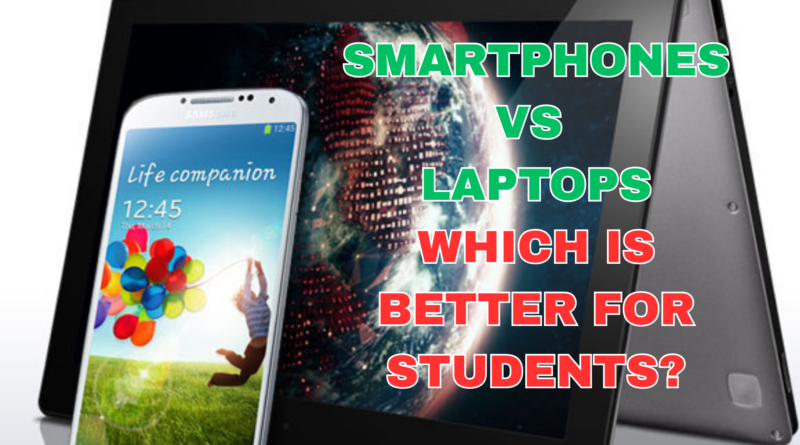SMARTPHONES VS LAPTOPS: WHICH IS BETTER FOR STUDENTS?
In today’s world of technology, students cannot imagine their studies without digital devices. Whether it is attending online classes, making projects, or doing research, gadgets play a huge role in education. Among all, two devices stand out the most smartphones and laptops. Both are powerful tools, but the question often arises: Which is better for students? The answer is not simple, because each device has its own strengths and weaknesses. Let us compare smartphones and laptops to understand which one is more useful for students.
1. Portability
Smartphones are extremely portable. They are small, lightweight, and easy to carry in a pocket or bag. Students can use them anytime and anywhere on a bus, in a library, or even while waiting for a class. Laptops, on the other hand, are heavier and require a proper bag. While modern laptops are becoming slim and light, they still cannot beat the convenience of smartphones when it comes to mobility.
Winner: Smartphone
2. Screen Size and Comfort
While smartphones are handy, their small screen size makes it difficult to study for long hours. Reading e-books, preparing presentations, or watching recorded lectures on a small display may cause eye strain. Laptops provide a bigger screen, making them more comfortable for long study sessions. With a laptop, multitasking is also easier students can open multiple windows, take notes, and browse research material at the same time.
Winner: Laptop
3. Typing and Productivity
Typing on a smartphone is possible but not very efficient for long assignments or reports. Touchscreen keyboards are not suitable for fast and error-free typing. Laptops come with physical keyboards, which make writing essays, preparing spreadsheets, and coding much easier. Students who need to work on projects, write research papers, or practice programming find laptops more reliable.
Winner: Laptop
4. Internet and Communication
Both smartphones and laptops provide internet access. Smartphones, however, are better for quick communication through calls, messages, and apps like WhatsApp or Telegram. They are also more suitable for social media and instant updates. Laptops, on the other hand, are better for video conferencing, attending virtual classes, and professional emails because of larger screens and better tools.
Winner: Tie
5. Learning Resources
Smartphones give students quick access to apps, e-books, and online resources. Educational apps like Duolingo, Byju’s, or Coursera are designed mainly for mobile use. However, when it comes to advanced resources like coding platforms, designing tools, or detailed research, laptops are much more efficient. For example, engineering or graphic design students cannot rely only on smartphones for their work.
Winner: Laptop
6. Battery Life
Smartphones usually have better battery life compared to laptops. A phone can last the whole day with normal use, while laptops often need charging after 5–8 hours of work. For students who need continuous access to online classes, battery backup plays a major role.
Winner: Smartphone
7. Cost Factor
Smartphones are usually cheaper than laptops. Almost every student today owns a smartphone, while laptops can be expensive, especially those with high performance. For students from middle-class backgrounds, buying a good laptop might not always be possible. Smartphones give them basic access to online classes and study materials at a lower cost.
Winner: Smartphone
8. Multimedia and Entertainment
Students do not just study they also use devices for entertainment. Smartphones are perfect for listening to music, watching short videos, or browsing social media quickly. However, for watching long educational videos, editing photos, or creating multimedia content, laptops provide a better experience.
Winner: Depends on Need
9. Skill Development
Laptops encourage students to learn professional skills like coding, designing, data analysis, or video editing. These skills are important for future careers. Smartphones, while useful, cannot replace the power of laptops in professional training.
Winner: Laptop
Final Verdict
So, which is better for students smartphones or laptops?
The truth is that both devices are important, but in different ways. Smartphones are great for communication, quick access, portability, and affordability. They are helpful for students who want learning on the go. Laptops, on the other hand, are better for deep learning, research, assignments, and skill development.
Ideally, students should use both: a smartphone for convenience and a laptop for serious academic work. If forced to choose one, the decision depends on the student’s needs. For basic online learning and communication, a smartphone is enough. But for higher studies, professional courses, and future career skills, a laptop is the better investment.




